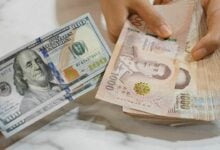Thailand advised to limit economic stimulus as recovery progresses

The Government of Thailand is being urged to reconsider its approach to economic stimulus as the country’s economy shows signs of recovery. The Thailand Development Research Institute (TDRI) advised against implementing large-scale economic stimulus measures, arguing that the economy is on a path to sustainable growth.
Nonarit Bisonyabut, a research fellow at TDRI, likened the private sector’s reliance on government stimulus to an addiction, which could potentially undermine its competitiveness. He stated that with the economy growing at a rate of 2.6 to 2.8%, nearing its potential of 3%, extensive government intervention is unnecessary.
Nonarit suggested that if any economic stimulus is needed, it should be limited to small-scale projects, costing between 10 and 20 billion baht. He referenced successful initiatives like the Khon La Khrueng co-payment scheme and the We Travel Together campaign as examples of effective small-scale projects.
He criticised large-scale interventions such as the proposed 10,000-baht cash handout, labelling them as excessive. Nonarit pointed out that research has shown many stimulus projects, like tax-deductible shopping schemes, to be inefficient, even less so than direct cash handouts, and called them a misuse of resources.
“I believe the business sector needs to strive for its own survival. If enterprises depend primarily on handouts, it won’t benefit the country or the government’s fiscal status.”
Nonarit characterised the current economic climate as a gradual recovery. Prior to the pandemic, Thailand’s economic potential was 3.6%. However, factors such as the US-China trade war and an ageing population have prompted analysts to lower expectations to 3% annual growth.
Forecasts for this year’s economic growth are pegged at 2.6 to 2.8%, depending on the assessment of the initial phase of the 140-billion-baht cash handout. Most projections fall short of the 3% target, illustrating a continued effort to reach this benchmark.

Looking ahead, Nonarit identified key risks for next year, including the Trump effect and the condition of China’s economy. President-elect Donald Trump’s protectionist policies, such as increased tariffs on Chinese goods and threats to tax nations avoiding the dollar, are expected to impact global trade and growth.
The health of China’s economy also remains a concern, with longstanding issues like a real estate bubble contributing to sluggish growth. As China’s economy cools, the effects are felt in Thailand, according to Nonarit.
“When the global economy slows, it means the economic pie shrinks in size. For countries to survive, they must devise strategies to secure the largest possible share of the pie for their own benefit.”
He stressed the need for Thailand to develop strategies to navigate these global changes. Historical trends show that Thailand has struggled to adapt to global crises, resulting in a steady decline in economic growth from 7% to 8% in the past to 3.6% before the pandemic and now below 3%, reported Bangkok Post.
Nonarit called for a re-evaluation of Thailand’s economic strengths and its offerings to the world as technological advancements change industry landscapes, citing shifts in the automotive and electrical appliance sectors. He mentioned the government’s interest in the chip manufacturing industry but pointed out the lack of expertise in this area.
“The tourism sector remains the only area that still shows promise, but we must also invest in new machinery and tools to drive the economy, generate income and significantly boost exports for the country.”
Frequently Asked Questions
Here are some common questions asked about this news.
Why might extensive government stimulus harm Thailand’s economy?
Over-reliance on stimulus can weaken the private sector’s competitiveness and fiscal health.
How could Thailand’s economy benefit from focusing on small-scale projects?
Small-scale projects, like successful co-payment schemes, offer targeted support without excessive resource use.
What if Thailand does not adapt to global economic changes?
Failure to adapt could lead to stagnant growth, missing out on securing a larger share of the global economic pie.
How do global events like the ‘Trump Effect’ impact Thailand’s economic strategies?
Protectionist policies can disrupt global trade, necessitating strategic adjustments to maintain growth.
Why should Thailand reconsider its economic strengths in light of technological advancements?
Re-evaluating strengths is crucial as tech changes reshape industries, requiring new investments for growth.
Latest Thailand News
Follow The Thaiger on Google News:


























